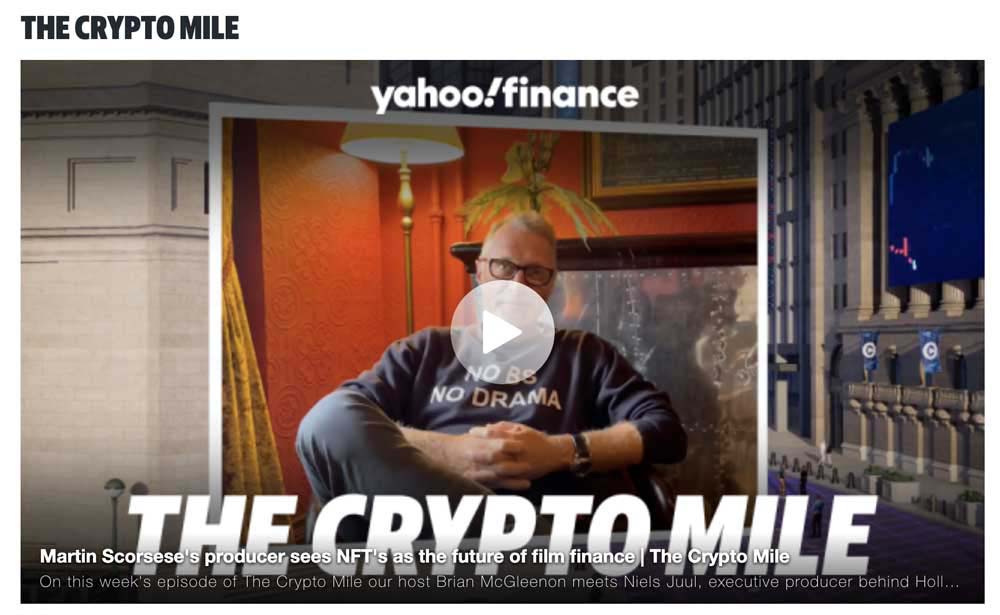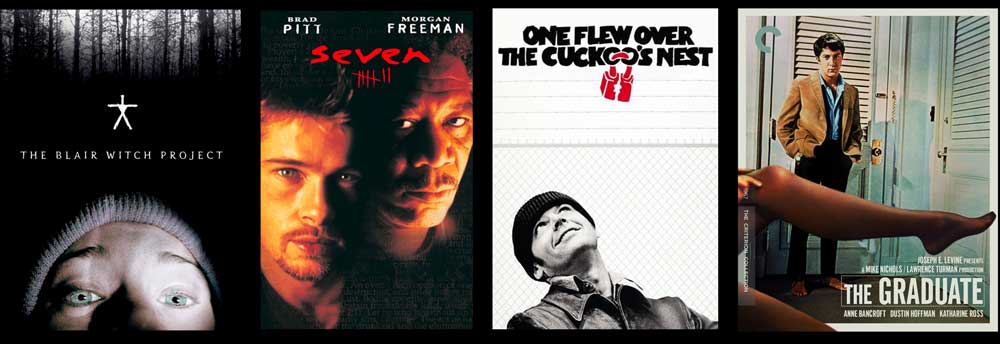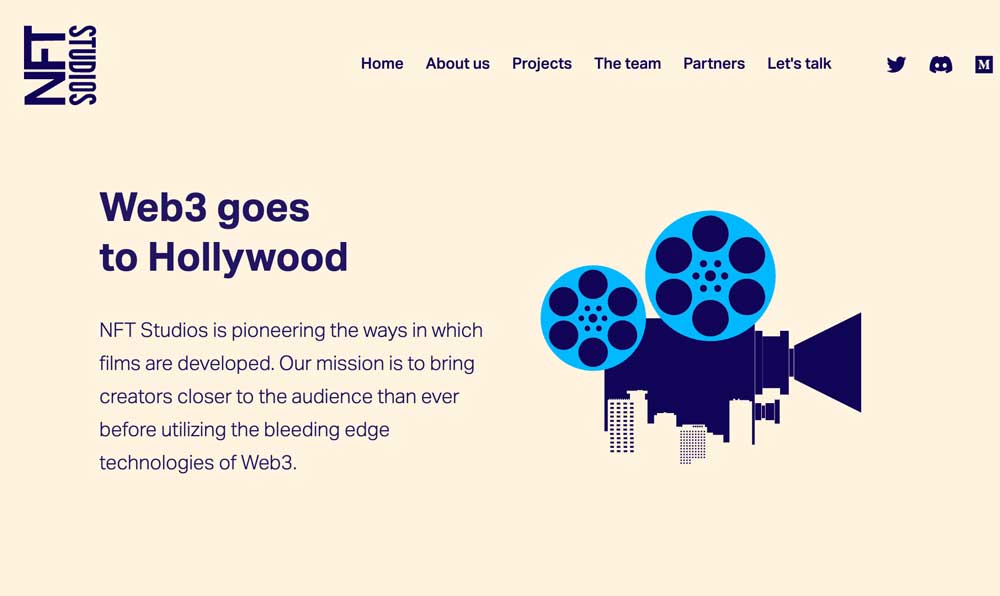Scorsese’s Hollywood Producer fights to save indie films with NFTs
Cue your best baritone movie-trailer voice… annnd ACTION!!!… “In a world where superhero franchises and insignificant sequels threaten independent filmmakers… only one thing can save them… N. F. Teeees”
That’s the view of Martin Scorsese’s go-to Executive Producer, Niels Juul. And, being behind some of Hollywood’s most recent blockbusters including The Irishman, Silence, and Michael Mann’s 2023 Enzo Ferrari biopic, he’s clearly no stranger to the ins and outs of Tinseltown.

But as impressive as his IMDB profile is, he’s quite frustrated with how the current monopolisation by the big four streaming platforms (Netflix, Amazon Prime Video, Disney+, and Apple TV) is jeopardising the “cultural agenda of the world”.
Speaking to YahooFinance’s The Crypto Mile, he voiced his concerns:
“Even though I’ve worked with Netflix and Amazon, the four big streaming players are only focused on hunting for the greatest market share… so the decision-making of what content audiences can see is in the hands of just four companies.” He continues “Ironically these companies are setting the cultural agenda of the world, so content creation has become a monopoly… not only a financial monopoly but more importantly, and more scarily, a cultural monopoly.”

Some of Hollywood’s greatest cultural achievements have been ‘indie films‘; American Beauty, SE7EN, One Flew Over The Cuckoo’s Nest, The Graduate, The Blair Witch Project, Black Swan (I could go on – seriously the list is impressive). Even Star Wars started life as an indie film. We’ll return to this later.
Indie films are essentially the ladder that’s given rise to the world’s best Directors; David Lynch, Kathryn Bigelow, Darren Aronofsky and Michel Gondry.
And it’s precisely the threat of tomorrow’s One Flew Over The Cuckoo’s Nest likely being rejected by the big four’s “cultural monopoly” that’s worrying Niels:
“A lot of producer friends of mine with amazing material and great scripts of movies of the type that would get made back in the day, like Kramer vs Kramer, or the Usual Suspects… that today they have an incredibly hard time getting made.”
He cites the studio overheads being “just too big” for them to waste time or take creative risks on sub-twenty million dollar movies. As a result:
“the independent movie finance market has dried up considerably over the last five or 10 years… the studios started only concentrating on big Marvel franchises… the independent film market got demolished, almost.”
And this is why, as he says, “there is a big need for disruption into the film financing model.”

